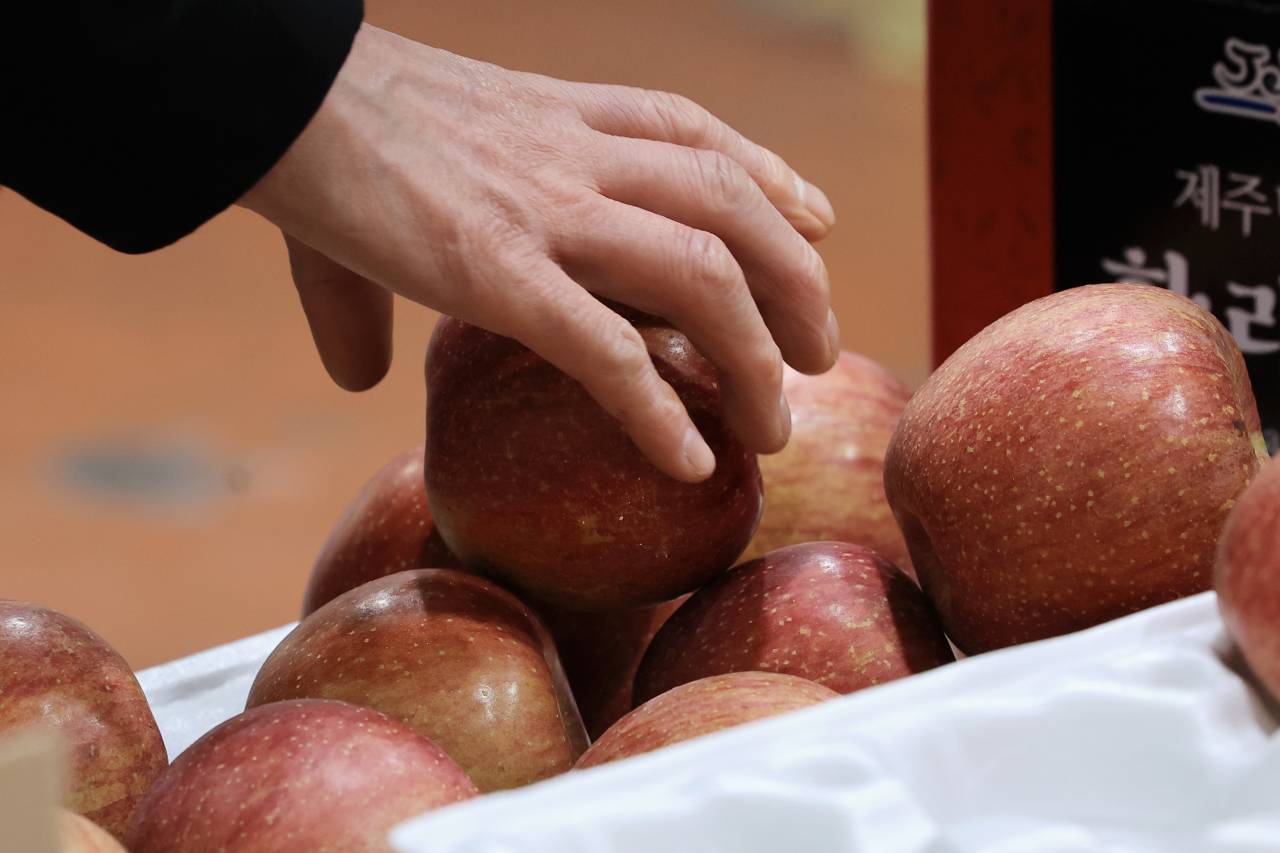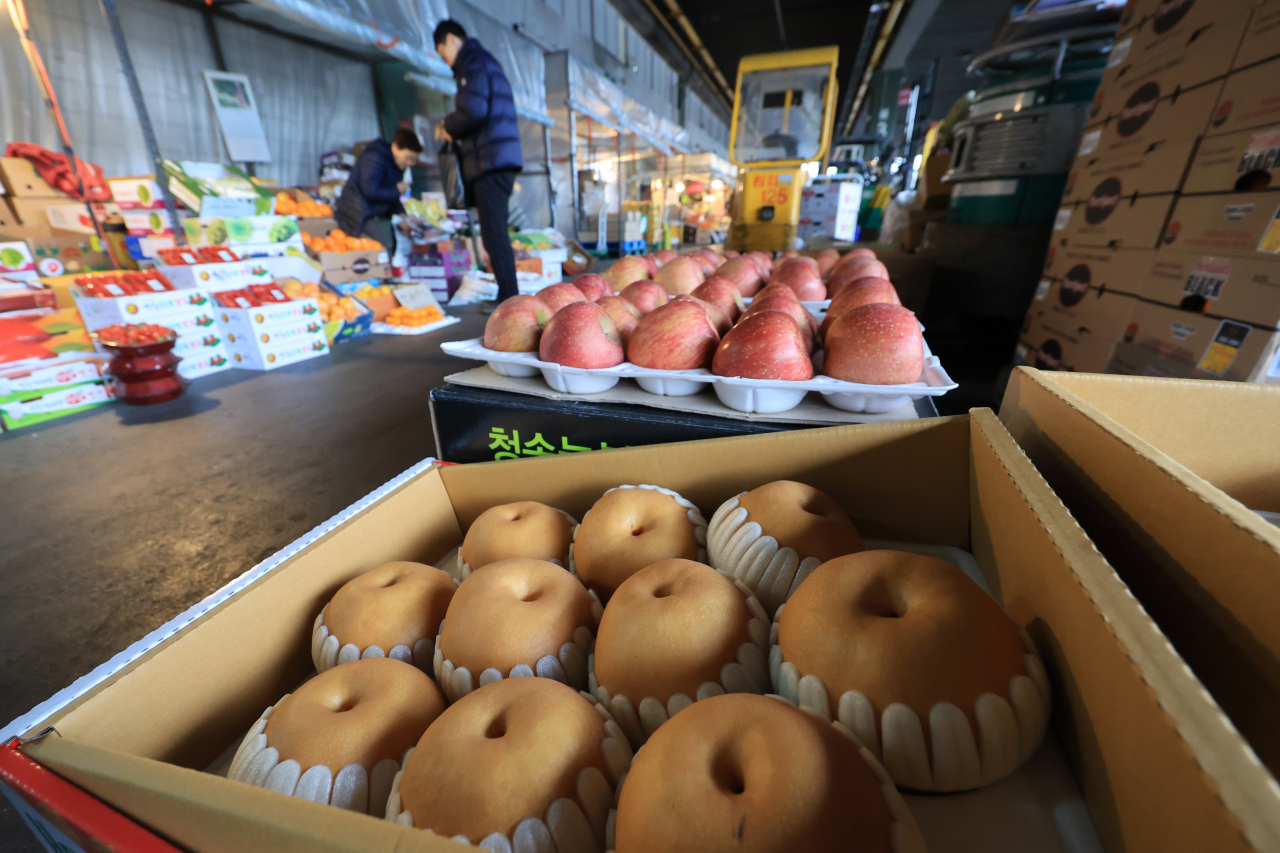An apple a day fritters savings away? Apple price rises to all-time high
By Yoon Min-sikPublished : March 13, 2024 - 12:12

The price of apples in South Korea recently skyrocketed to an all-time high as fruit prices in the country continue to soar amid ongoing inflation, data from a state-run agency promoting and supporting agriculture trade showed Wednesday.
The wholesale price of 10 kilograms of apples as of Tuesday was 91,700 won ($70), more than double the 41,060 won for same amount at the same time last year, according to the Korea Agro-Fisheries & Food Trade Corporation. The price for 10 kilograms of apples surpassed the 90,000-won mark for the first time on Jan. 17 this year, and then climbed to all-time high of 94,520 won on Jan. 29.
The price has been hovering above 90,000 won since March 6, when it was 91,120 won.
The price for 15 kilograms of pears was 103,600 won, on Tuesday. It has remained on the upward trajectory since 100,120 won on March 7, when the price passed the 100,000-won mark for the first time since Aug. 19, 2021.
Retail prices for the two types of fruit also jumped substantially, with Tuesday's price for 10 apples increasing 30.5 percent from a year before, from 23,063 won to 30,097 won. Ten pears cost 42,808 won, which was up 50.1 percent from 28,523 won a year before.
Asian pears are different from common North American or European varieties. They are usually bigger than the large apples commonly sold in South Korea, which is why a single pear usually costs more than a single apple.

Compared to Feb. 13, the retail price of apples on Tuesday has risen by 2.3 percent while that of pears has risen by 17.3 percent. In a bid to minimize these price spikes, the Ministry of Agriculture, Food and Rural Affairs has been subsidizing the discount for fruit sellers by injecting over 40 billion won to reduce retail prices throughout March and April.
The sky-high prices of these common fruits have resulted in reduced annual fruit consumption for South Koreans, with the Agriculture Ministry data showing a 19 percent decline from 67.9 kilograms per person in 2007 to 55 kilograms in 2022. The percentage of those in the country eating at least 500 grams of fruit or vegetables per day, the recommended amount by the Korea Disease Control and Prevention Agency, dropped from 38.6 percent in 2015 to 22.7 percent in 2022.
A recent report by state-run Korea Rural Economic Institute has projected another increase in the price of major fruits and vegetables for this month, due to the decrease in daylight hours. According to the Jeollanam-do Provincial Government, the major agricultural region of South Jeolla Province has experienced a 23 percent decrease in daylight between November last year and January this year.




















